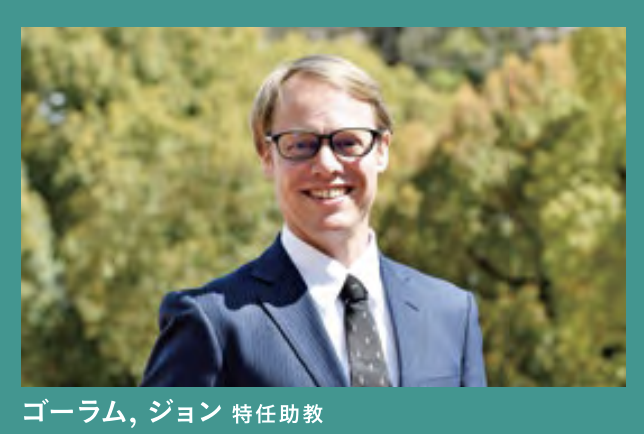2023.10.26
News
Jon Gorham, Specially Appointed Professor of Faculty of Global Management, to present his research at The Asian Conference on Education (ACE2023)

Specially Appointed Professor Jon Gorham
Specially Appointed Professor, Jon Gorham of the Faculty of Global Management will give a research presentation with Mr. Daniel Mills (Ritsumeikan University) on the topic of "Generative AI Tutors & Project-Based Learning: Boosting Financial Literacy in Japanese Students” at The 15th Asian Conference on Education (ACE2023) of the International Academic Forum (IAFOR).
The presentation will be held from November 22 to 25. Streamed online.
International Academic Forum is a non-profit interdisciplinary think tank established in 2009. The organization encourages interdisciplinary discussions, facilitates intercultural awareness, and organizes a conference to promote international exchange through supporting pedagogical academic research, in particular. It also engages in publications.
IAFOR has an office in Nagoya and a research center housed in the Osaka School of International Public Policy (OSIPP). The organization partners with universities and think tanks around the world, and organizes research programs or events in Asia, Europe, and North America. In addition, IAFOR works with the institutions such as the United Nations and the Japanese governments, and holds various programs and events.
The Faculty of Global Management also facilitates the research activities of our faculty members in giving presentations on Chuo’s pedagogical accomplishments at international academic conferences.
Generative AI Tutors & Project-Based Learning: Boosting Financial Literacy in Japanese Students
Jon Gorham, Chuo University, Japan
Daniel Mills, Ritsumeikan University, Japan
Abstract
Promoting financial literacy among university students is crucial in today's complex economic landscape. This study addresses the research gap in innovative pedagogical approaches by investigating the efficacy of integrating ChatGPT, a generative AI tool, into a Japanese university elective class focused on financial literacy.
Thirty students at a private university in Eastern Japan took part in this 14-week course, which was taught in English. The students used a generative AI tutor to explore various personal finance topics. The students used what they learned to create learning artifacts such as a personal webpage and digital presentations. A survey was administered to the students at the beginning and end of the class. The survey instrument consisted of 18 quantitative items organized in three categories (1) Financial Knowledge, (2) Financial Behavior, and (3) Financial Attitude. Several open-ended questions were also included to gain a deeper understanding of the quantitative responses.
Preliminary findings indicate a positive impact on student learning outcomes, and participants found the AI-powered interactions engaging and informative. Students in the elective course also displayed confidence in grasping intricate financial concepts. Moreover, qualitative analysis of post-interaction reflections revealed a deeper conceptual understanding and improved application of financial principles in real-life contexts.
The results of this research will benefit educators, researchers, and practitioners who wish to understand how generative AI can be used to cultivate financial literacy and prepare students for a more secure and informed financial future.
